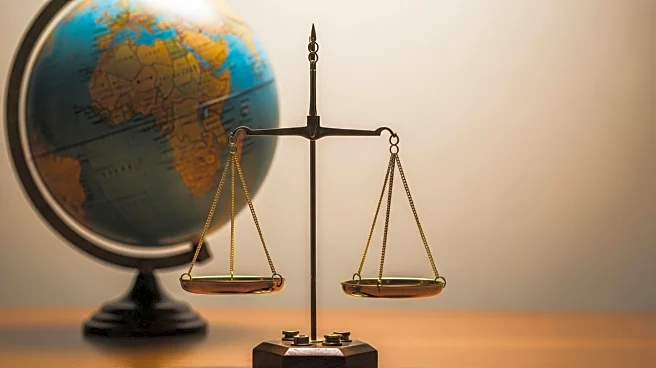What's Happening?
Palestinians have submitted a legal petition to the UK Foreign Office seeking an apology and reparations for alleged war crimes committed during the British Mandate in Palestine from 1917 to 1948. The petition, representing 13 families, claims abuses such as murder, torture, and expulsion were carried out by British forces, amounting to war crimes and crimes against humanity. The submission follows the UK's recent recognition of a Palestinian state, joining over 150 nations. The UK Ministry of Defence has acknowledged historical allegations and stated that any evidence provided will be thoroughly reviewed.
Why It's Important?
The petition highlights ongoing demands for accountability and reparations for historical injustices, which could influence international relations and historical narratives. The UK's recognition of a Palestinian state may impact diplomatic relations with Israel and the United States, who oppose the move. Addressing these allegations could lead to broader discussions on colonial legacies and reparations, potentially affecting similar cases worldwide. The outcome may also influence public opinion and policy regarding historical accountability and reconciliation.
What's Next?
The UK Foreign Office has yet to confirm whether ministers are aware of the petition, but Deputy Prime Minister David Lammy is expected to request officials to review the submission. The petitioners aim to build on previous concessions made by the UK over colonial-era war crimes, such as apologies for the Batang Kali massacre and the Mau Mau uprising. The response from the UK government could set a precedent for addressing historical grievances and influence future diplomatic engagements with Palestine and other nations.
Beyond the Headlines
The petition underscores the ethical and legal challenges of addressing historical injustices, particularly in the context of colonialism. It raises questions about the responsibility of former colonial powers to acknowledge and compensate for past actions. The case may prompt broader discussions on the impact of colonial legacies on current geopolitical dynamics and the role of historical accountability in international relations.









